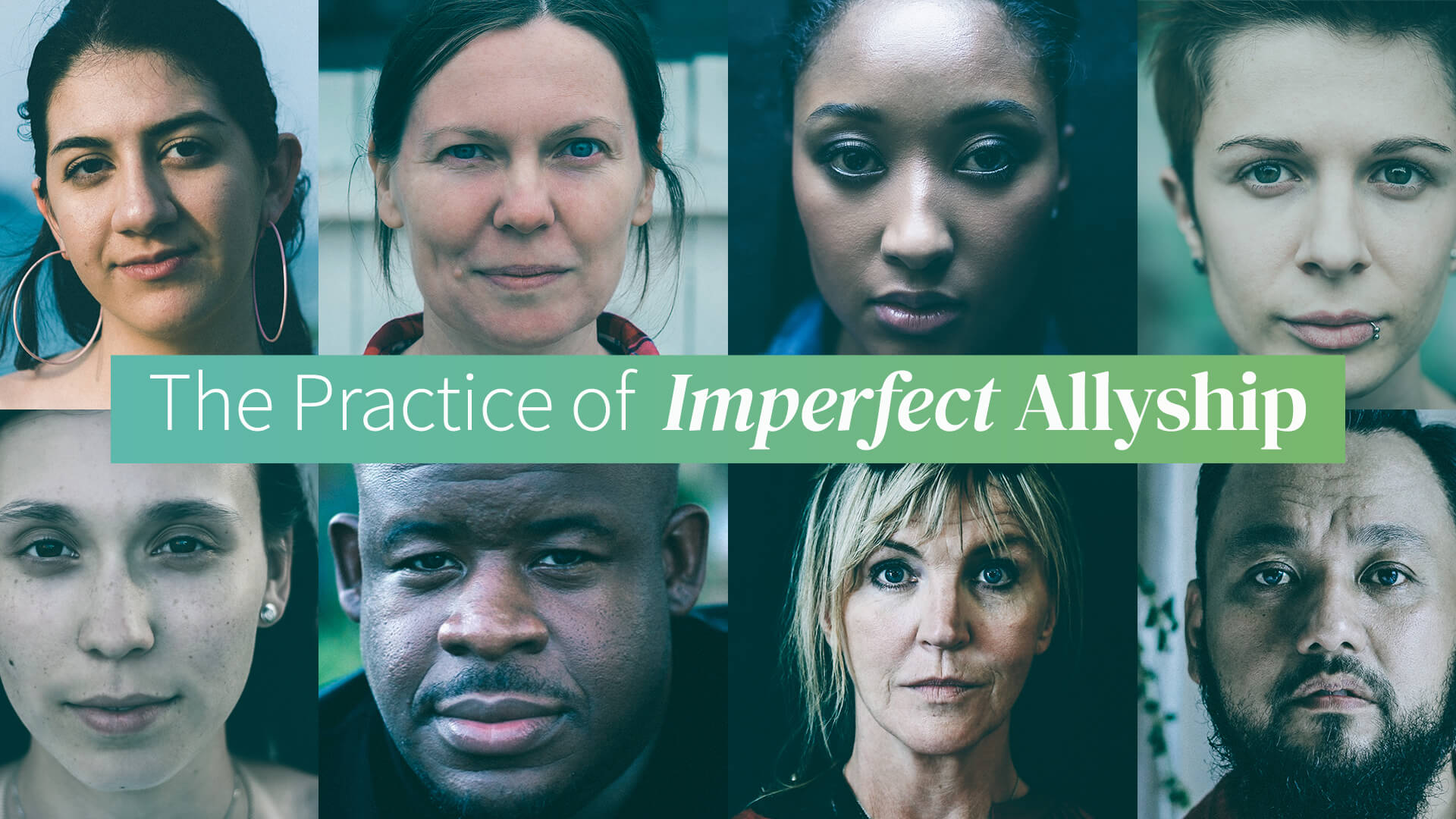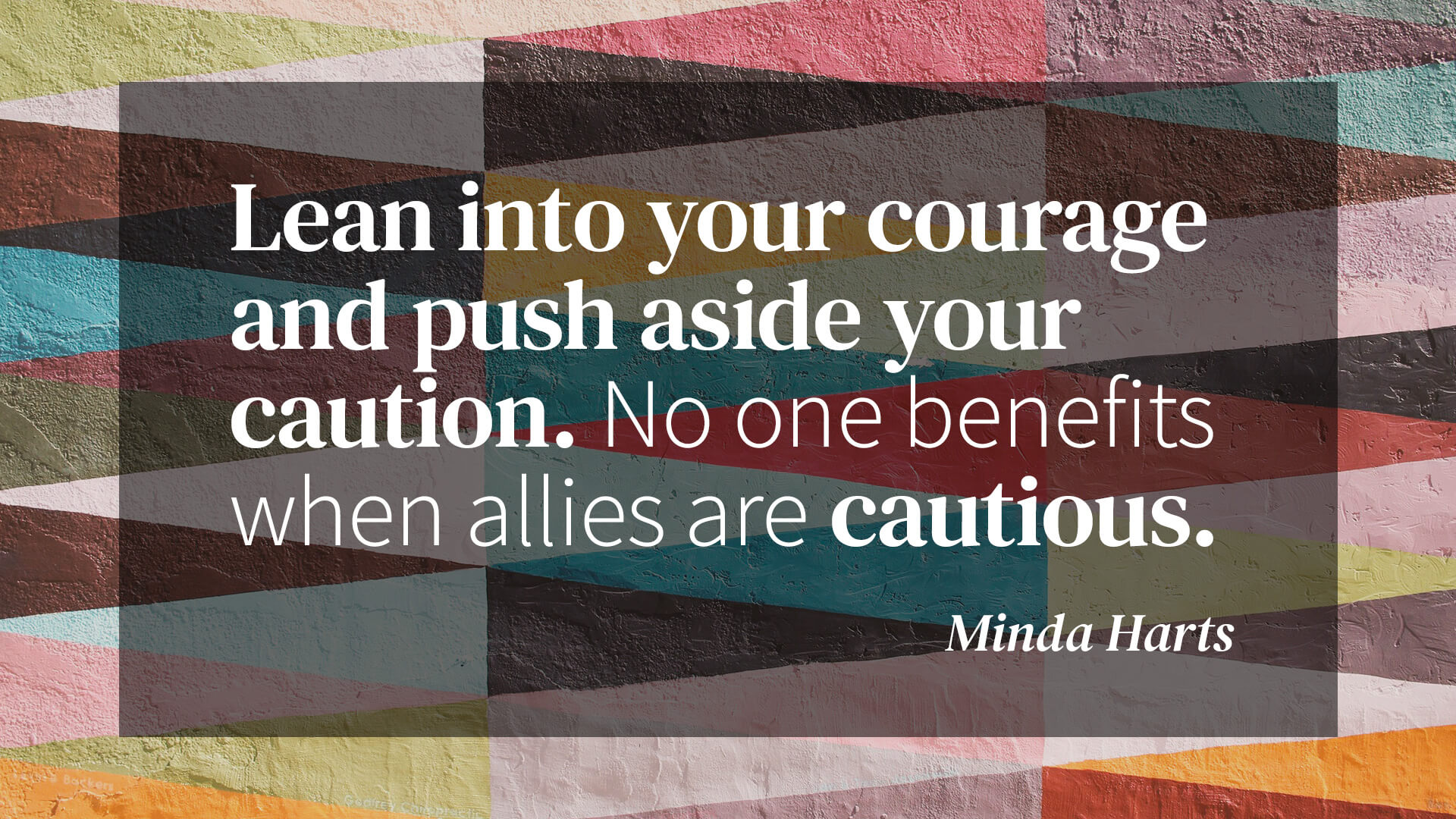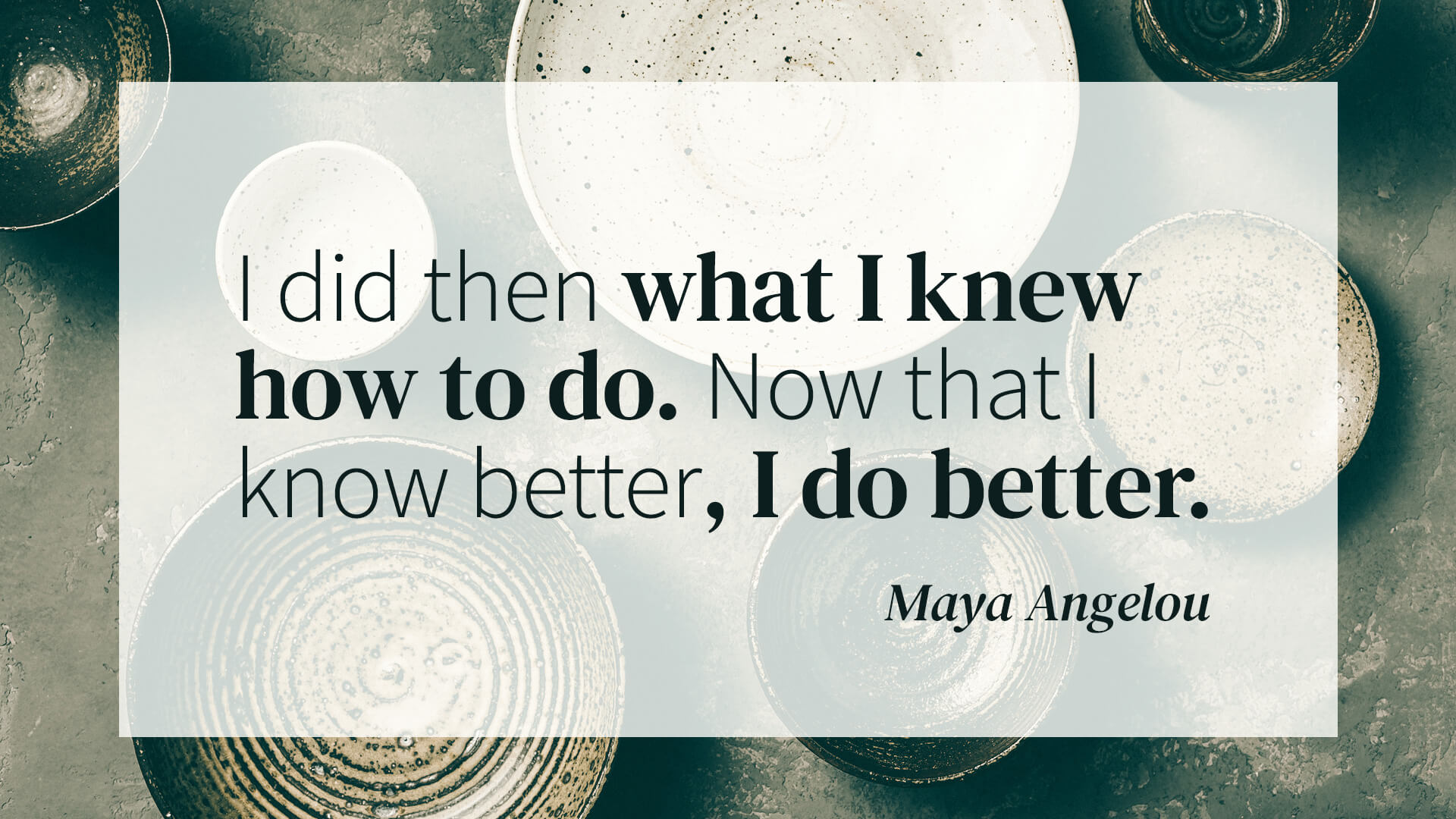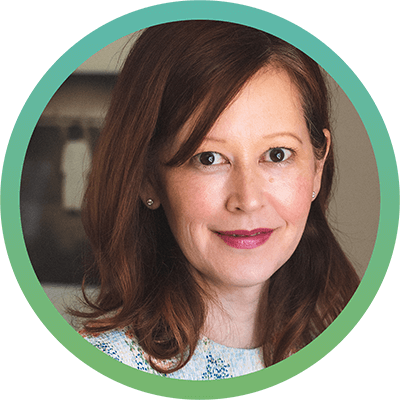
The last three weeks have been crushing and heartbreaking as the trauma of racism has once again been exposed in our collective consciousness.
Still in the midst of the COVID-19 pandemic, millions of people across the United States and around the world have been engaging in civil rights protests to support Black Lives Matter and to speak out against police brutality. I’ve been inspired and encouraged by people of diverse backgrounds and identities marching together to express outrage and demand justice.
Important conversations about what it means to be an ally are taking place much more broadly and urgently than in the past. These discussions have been thought-provoking, instructive, and motivating.
Many people are now examining their unconscious biases, some for the first time. They’re asking critical questions: Do I make assumptions that are unfair? Have I learned lessons that are untrue? How have these beliefs made me complicit in perpetuating racism?
Perfectionism Leads to Inaction
Concepts like white fragility, tone-policing, and performative activism are being widely discussed in news outlets and on social media, often with different emphases and recommendations. People of diverse backgrounds are asking white people to stop centering their experiences and to listen to Black voices. Some people are calling for more action from white allies, and others are asking them to step back and let BIPOC activists lead.
Information is coming in quickly from many sources and perspectives. Our culture, it seems, is trying to keep up with the rapid changes from the grassroots right now. People from all sides of the spectrum are offering analyses, prescriptions, and calls to action. It’s important to pay attention, respect their right to speak freely, and consider the content of their messages.
For some people, though, it can be hard to make sense of what to do next and how to do it right. On social media, I’ve seen many people who consider themselves allies criticizing each other for not doing allyship perfectly.
In response, well-intentioned people are retreating into silence and inaction. Fear of making mistakes in a very public way has kept some potential allies from taking action at all. Wanting to protect themselves from being called out for perceived missteps, they stay in their zones of comfort and familiarity. Often, shame, when unexamined and unprocessed, can create divisions—within the self and within communities—that cause people to blame each other rather than look at their own biases and privileges. A wise and courageous presence is only possible if we put aside our judgment.

Take Imperfect Action
Within the last week, I’ve seen another conversation emerge about imperfect allyship. For me, the key takeaway is, You won’t do it perfectly, but don’t let that stop you from doing at least something. Part of mindfulness practice is listening with empathy and compassion, being willing to acknowledge error, and making a dedicated effort to do better.
Staying connected to our vulnerability allows us to connect to our shared humanity.
If you consider yourself an ally but regret not doing more to challenge structures of oppression, allow this new awareness to guide your path forward. We each have a role to play in fighting racism. Things won’t always feel comfortable, nor should they. Sometimes growth is painful.
Allies can turn towards their discomfort and fear and meet those feeling states with curiosity, asking themselves, What’s here for me to learn? What might others be feeling and needing right now? How can I take action to serve, to do my part in promoting equality and justice in our society?

Time to Reflect
Our country needs as many voices as possible to speak out against racism. Rather than holding an impossible standard of perfection which can be paralyzing, stay connected to your practice of compassion and sense of agency. It takes a courageous presence to simultaneously continue examining the ways that many of us have benefited from privilege while taking the necessary actions to promote a just society.
For those who are unsure about exactly how to begin, I invite you to start with one conscious breath. Sit quietly and get in touch with your heart. Connect with your values and aspirations; let them guide your practice.
Tune into your body with a willingness to be with all that you’re feeling. Set an intention to be gentle and curious. What do you notice? Bring awareness to the sensations, thoughts, images, and feelings that arise.
As you reflect on racial injustice in our society, you might be connecting to feelings of anger, grief, hopelessness, guilt, disconnection, exhaustion, or despair. See what calls for your attention. Be a compassionate witness for all that arises and meet challenging feeling states with kindness.
When we develop the internal practice of deep listening and compassionate responding, we can take this practice into the world and let it guide our allyship and activism.
In the words of Dr. Martin Luther King, Jr., “Our lives begin to end the day we become silent about the things that matter.”
